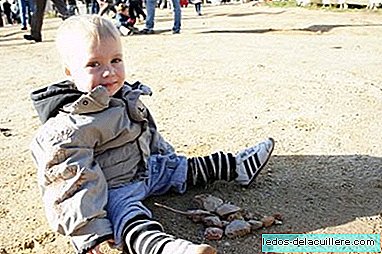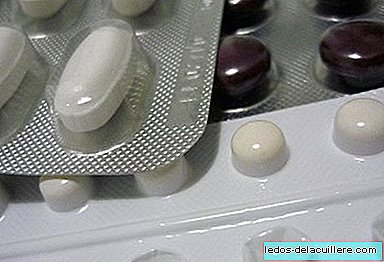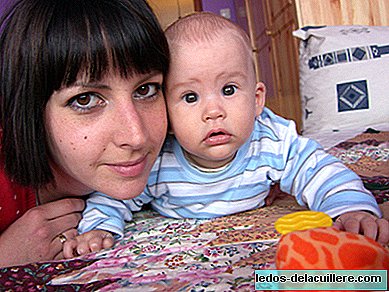
A little over a month ago we told you the story of the model Elizaveta Bulokhova (you see in the photo) that pregnant with her first baby learned that she had a very advanced cancer in the jaw, with the consequent indication of the doctors of abort to start treatment. Faced with such a dilemma, and although he was going to pay attention to them, in the end he decided to listen to his baby and waited to start chemotherapy after the baby was born in week 28 and could survive. This story we were shocked and moved equally, and it is only one of many in which women discover that they have cancer during pregnancy having to make a very hard decision.
Well, today I bring you great news, and it is that a recent study has analyzed the impact of cancer treatments on the health of babies and, as they conclude, such treatments could be compatible with pregnancy.
Study Data
As we read on ABC, the study has been published in the prestigious magazine The New England Journal of Medicine and to carry it out the researchers studied 129 children whose mothers had cancer during pregnancy and 129 children with healthy mothers, to be able to make a comparison.
This comparison consisted of a neurological examination and an examination to evaluate child development at 18 months and again at 36 months, and a cardiac evaluation when all of them had 36 months.
Of the 129 children whose mothers had cancer, 96 (74.4%) were exposed to chemotherapy (as a single treatment, or combined with others), 11 children (8.5%) were exposed to radiotherapy (as a single treatment or combined with others), 13 (10.1%) to maternal surgery, 2 (1.6%) to other pharmacological treatments and 14 (10.9%) were not exposed to any treatment.
The only thing that was affected was the birth weight
In the results, they saw that 28 of 127 children (22%) in the group of mothers with cancer were born with a weight below the 10th percentile. In the group of healthy women, 19 out of 125 (15.2%) were born with the same weight. In reference to the evaluations to which the children were subjected, they saw that there were no significant differences in children's cognitive development and in the cardiological exams they saw that all had normal results. They did see that some had worse cognitive development, but it was associated with their gestational age. That is, those who were born before had worse scores but not because of the treatment, but because they were born before.
Given these data, the researchers concluded that:
Prenatal exposure to maternal cancer with or without treatment does not jeopardize the cognitive, heart or general development of children in early childhood. Prematurity was correlated with a worse cognitive outcome, but this effect was independent of cancer treatment.
Great news, no doubt

The study has a very small sample, actually, and this detracts a bit from reliability (only 11 children were exposed to radiotherapy, for example). However, it opens a door to hope and the continuation of research on everything related to pregnancy and cancer treatments.
At a time in history when it seems that, according to some experts, the diagnoses will be more and more (It is already said that one in two children born now will suffer from cancer), research is essential to combat it, control it and overcome it if possible.
Meanwhile, parents and children should become aware and do everything possible to avoid it. According to WHO we must:
- No Smoking and avoid secondhand tobacco.
- Control weight actively, limiting the time we are sitting, exercising and eating a healthy diet Rich in cereals, legumes, vegetables and fruits. In addition, we must avoid or reduce the consumption of foods rich in calories, sugar and fat, as well as sugary drinks. Also avoid eating processed meat and limit the consumption of red meat and salt-rich foods.
- Reduce alcohol consumption. If it can be avoided, the better.
- To have watch out for the sun, using sun protection and avoiding the use of solar cabins.
- Protect ourselves against carcinogenic substances in our daily life, at home or at work.
- If you are a woman, breastfeed as much as possible, because breastfeeding reduces the risk of breast cancer. Keep in mind that hormone replacement therapies increase the risk of some types of cancer.
- Vaccinate boys against hepatitis B and the human papillomavirus (for girls).
- Check us for colon cancer (men and women), breast cancer (women) and cervical cancer (women).
Photos | Manolo Studios, iStock
In Babies and more | The hard story of a pregnant woman who gave up cancer treatment and died weeks after giving birth, Being a mother with uterine cancer, The risks of pregnancy and childbirth after cancer












